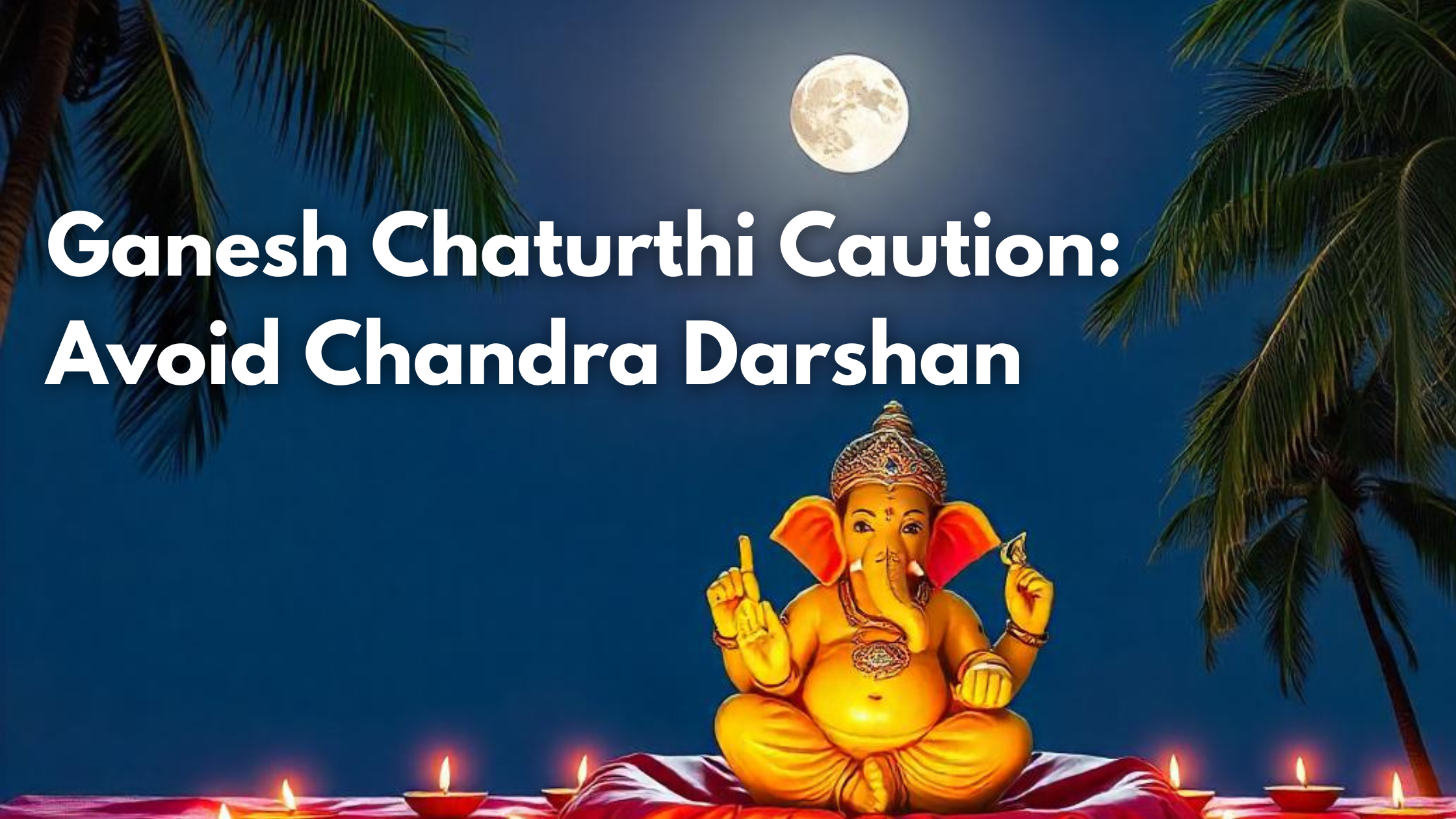Lord Ganesha is revered as both the remover and creator of obstacles. He is an exceptional deity who bestows blessings in all realms. Every living being in the multiverse, including humans living on Earth, gods residing in Heaven, and ancestors in the Realm of the Ancestors, receives blessings when Lord Ganesha is pleased.
This verse from the Bhavishya Purana stands as testimony:
एकदन्ते जगन्नाथे गणेशे तुष्टिमागते ।
पितृदेवमनुष्याधा: सर्वे तुष्यन्ति भारत ॥
– भविष्य पुराण
“Ekadante Jagannathe Ganeshe Tushtimagate |
Pitrudevamanushyadha: Sarve Tushyanti Bharata ||”
– Bhavishya Purana
Ganesh Chaturthi, as per the Amavasyant method—which considers the month from new moon to new moon—falls on the fourth day of the waxing moon in the month of Bhadrapada. This day is celebrated as the manifestation day of Lord Ganesha and is considered the most auspicious for pleasing Him. On this day, we welcome Lord Ganesha into our homes and perform various rituals and worships.
There are numerous traditional practices and guidelines for celebrating this day, which vary by region and context. However, one specific instruction stands out universally: on this night, we must avoid viewing the moon. The Ganesh Purana explains this clearly through a story.
It is said that sighting the moon on this night causes a significant misfortune, known as “Chandra Dosha.” To teach a lesson, Lord Ganesha cursed the moon, saying, “O Moon, whoever gazes upon you shall face great sorrow.” All the gods, including the Moon deity, pleaded with Lord Ganesha to revoke the curse. Lord Ganesha stated that although the curse could not be undone, it could be modified: “Anyone who sees the moon knowingly or unknowingly on my birthday night will be cursed with sorrow.”
This is illustrated in the Ganesh Purana by the following verse:
भाद्रशुक्लचतुर्थ्याम् यो ज्ञानतोऽज्ञानतोऽपि वा ।
अभिशापी भवेत् चन्द्रदर्शनाद् भृश दुखभाग् ॥
– गणेश पुराण
“Bhadrashukla Chaturthyām yo jñanato’jñanato’pi vā |
Abhiṣāpī bhavet candradarśanād bhṛśa duḥkhabhāg ||”
– Ganesh Purana
Now, the word “moon” not only signifies the celestial body visible in the sky at night but also has a more subtle connotation. In Sanskrit, “Chandrama” symbolizes the mind.
The Purusha Suktam declares:
चन्द्रमा मनसो जात:।
– पुरुष सूक्तम्
“Chandrama Manaso Jata.”
– Purusha Suktam
Decoding this aphorism implies that on Ganesh Chaturthi, one should refrain from indulging in activities that cater merely to our basest inclinations such as entertainment. Instead, we ought to practice self-discipline, directing our minds towards spiritual and intellectual pursuits.
Thus, on the day of Ganesh Chaturthi, avoiding the sight of the moon—’Chandra’—on the night sky symbolizes not engaging in frivolous activities but rather focusing on those that foster wisdom and spiritual growth, thereby dispelling obstacles.
The scriptures further elucidate the meaning of the term ‘Ganesha’. The Brahmavaivarta Purana interprets Ganesha as comprising ‘Gana’ and ‘Isha’ which translates to the lord of the ‘Gana’. Here, ‘Gana’ is a composite of two syllables ‘Ga’ and ‘Na’, where ‘Ga’ stands for knowledge and ‘Na’ signifies liberation or spiritual growth.
Therefore, Ganesha is understood as the deity who imparts knowledge, guiding us towards spiritual enlightenment.
Consider this verse from the Brahmavaivarta Purana:
ज्ञानार्थवाचको गश्च णश्च निर्वाणवाचक: ।
तयोरीशं परं ब्रह्म गणेशं प्रणम्याम्यहम् ॥
– ब्रह्मवैवर्त पुराण
“Jnanarthavachako Gashcha Nashcha Nirvanavachakaha |
Tayorisham Param Brahma Ganesh Pranamyaham ||”
– Brahmavaivarta Purana
Shubham bhavtu.







